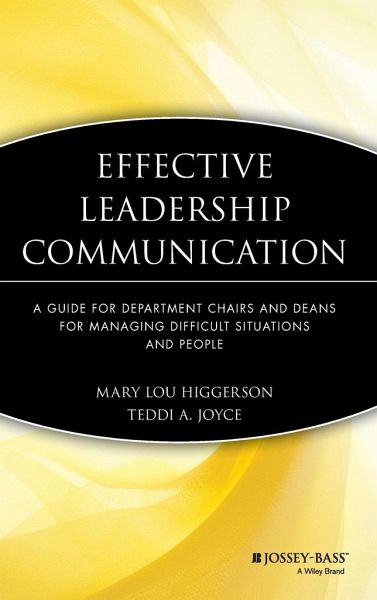
Leadership Communication Chairs Deans
Versandkostenfrei!
Versandfertig in über 4 Wochen
42,99 €
inkl. MwSt.

PAYBACK Punkte
21 °P sammeln!
Effective Leadership Communication A Guide for Department Chairs and Deans for Managing Difficult Situations and People Conflict can appear with varying degrees of intensity or hostility, but if it is not managed effectively, it can slow or jeopardize an institution's success. Chairs and deans compromise their leadership success unless they are able to effectively manage a variety of conflict-laden situations and difficult personalities. This book provides insight into managing challenging processes and offers guidance for dealing with such notable and stress-producing personalities as the pot...
Effective Leadership Communication A Guide for Department Chairs and Deans for Managing Difficult Situations and People Conflict can appear with varying degrees of intensity or hostility, but if it is not managed effectively, it can slow or jeopardize an institution's success. Chairs and deans compromise their leadership success unless they are able to effectively manage a variety of conflict-laden situations and difficult personalities. This book provides insight into managing challenging processes and offers guidance for dealing with such notable and stress-producing personalities as the pot stirrer, the prima donna/drama queen, the confrontation junkie, and the passive, indifferent soul. Each chapter contains a series of questions and prompts to guide chairs and deans through a hypothetical but realistic situation, and encourages them to cultivate and practice the first-person participant and third-person observer roles. By moving between these two perspectives, chairs and deans will gain more insight into their own style of managing conflict and understanding of leadership. This skill also permits chairs and deans to have more strategic control over the communication in a particular situation, thus empowering them to feel and to be more in control in every situation. This book is organized into three parts: Part 1 Establishing a foundation for effective leadership communication Part 2 Developing a fair and effective leadership communication style Part 3 Using leadership communication to manage especially difficult people












